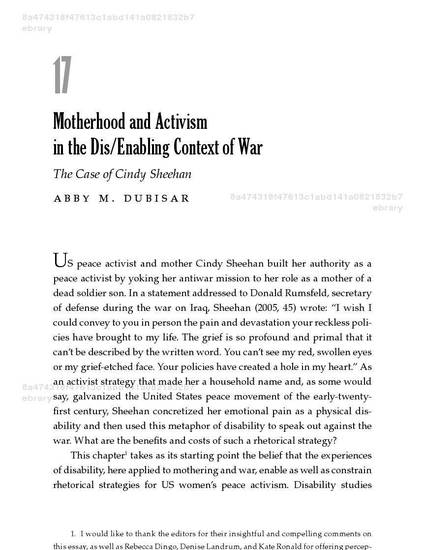
U.S. peace activist and mother Cindy Sheehan built her authority as a peace activist by yoking her antiwar mission to her role as a mother of a dead soldier son. In a statement addressed to Donald Rumsfeld, secretary of defense during the war on Iraq, Sheehan (2005, 45) wrote: "I wish I could convey to you in person the pain and devastation your reckless policies have brought to my life. The grief is so profound and primal that it can't be described by the written word. You can't see my red, swollen eyes or my grief-etched face. Your policies have created a hole in my heart." As an activist strategy that made her a household name and, as some would say, galvanized the United States peace movement of the early-twenty first century, Sheehan concretized her emotional pain as a physical disability and then used this metaphor of disability to speak out against the war. What are the benefits and costs of such a rhetorical strategy?
Available at: http://works.bepress.com/abby_dubisar/7/

This is a chapter from Disability and Mothering: Liminal Spaces of Embodied Knowledge (2011): 222. Posted with permission.